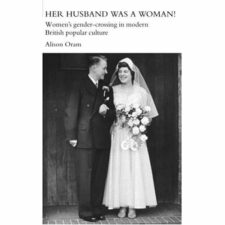‘History will proclaim you false if you are silent now. “Come out and be separate” from all that makes for war.’
Vida Goldstein, 1914
Around 35 million people died in the First World War. Such overwhelming suffering was the result of the competition for empire and the ignorance, at the highest levels, of the effects of the then modern weapons. Some Australian women enthusiastically endorsed the male blood letting, the male proving by combat and the opportunities offered for women to take care of matters behind the scenes. Some Australian women passionately opposed the violence, which they identified as being of no permanent value to women, and advocated other ways of resolving disputes over human needs and ambitions.
Yet a century on, both enthusiasts and war opposers are pretty much forgotten, the usual fate of women. Even well recorded women, articulate about the weighty matters of war and peace, the sufferings of soldiers and war families, and the security of the nation, need to be rediscovered. Prejudice & Reason rediscovers them and recalls early 20th century women’s voice, interest and industry around armed conflict to our 21st century notice – to our awareness that women in Australia did share in the task of informing and shaping a national and international commentary.
On Anzac Day when war and men are remembered, we do not equally remember women. But then, a century on, the men who were sent out to kill or be killed – some rationalising that they ‘fought in the war for children to have freedom to laugh, climb trees and run headlong into the world’, all of them knowing they could be shot by their own side if they refused to fight, and many believing themselves murderers from the killing they were forced to – are not well remembered either. For Anzac Day now commemorates forgetting. Forgetting, despite the ritual ‘Lest We Forget’ each year. Forgetting, the peaceful ballot which created an Australian nation and remembering instead a lie-myth that Australia was born a nation, in blood, in Turkey.
On Anzac Day, we forget to tally the lives saved by women by their courage and their votes in opposition to war demands – to forcing boys and shaming men to be soldiers. And we forget that armed force has, since the 1914-18 war, been made the priority of Australia’s defence and security, and that that maintains a strong prejudice against the rationality of prioritising human rather than military security.
On Anzac Day, we need to remember that 20th century women have been the prime drivers in establishing institutions and mechanisms to enable humanity to base defence on human rather than military security. Numerous international forums, an expanding body of international human rights laws and the international criminal courts have begun a shift to human security; to considering the demands of women for equality, justice, freedom and democracy. Through the century women continued to offer different ways of thinking about appropriate response to conflict, about the needed peace outcomes from defence, and currently, in the 21st century, these different ways are unfolding from the UN Security Council Resolution 1325 which women brought about in October, 2000. National action plans for women, peace and security are now seeded in nations across the world and being nourished to grow by the women of those nations, including Australia.
Overwhelming suffering and tremendous devastation has been the effect of wars in the last century and those continuing to the present. The next hundred years, if humanity survives our war induced climate changes, may yet see the triumph of reason over prejudice. Perhaps this book, Prejudice and Reason, and books that follow in this style of verbatim recall, will stimulate further development of peace and anti-war movements, further studies of the 20th-21st century defining Great War by writers influenced by its peace movements – and further understanding of why some victims of oppression, women for example, used the minor liberties of wartime to become advocates of the killing and destruction, while other women became advocates of alternatives to war and ending war.
Let’s resolve to hand on faithfully all our 20th and 21st century women’s works to 22nd century daughters.’
Hellen Cooke (c) April 2013
Until her death in July 2013, Hellen Cook was a longtime member of WILPF – the Women’s International League for Peace and Freedom, and convenor of WILPF, Victoria. She wrote this piece as a ‘blurb’ for Prejudice and Reason, by Geraldine Robertson and Women’s Web, however, for reasons of length it could not be incorporated, so is published here in recognition of Hellen Cook’s contribution and the contribution to the cause of peace made by women the world over, and particularly Australian women who took a strong stand against war and for peace during the horrors of the First World War.
Note – For Women’s Web go to wmnsweb@iprimus.com.au – www.womensweb.com.au .











